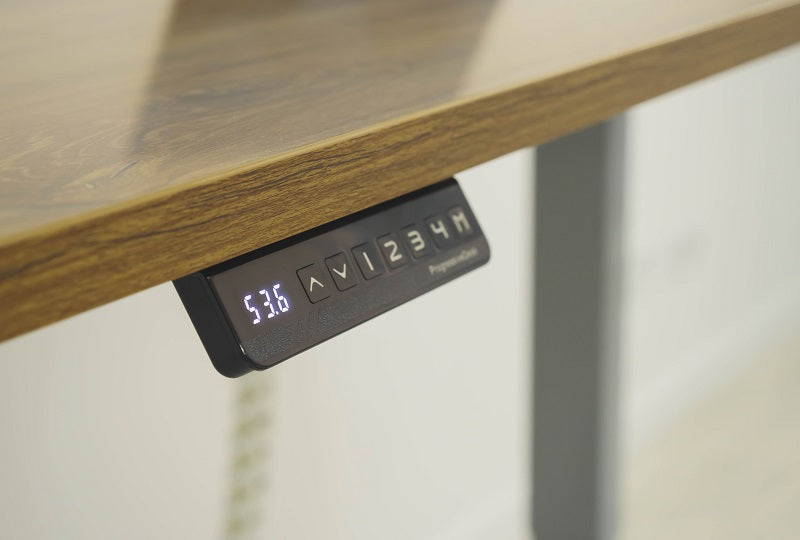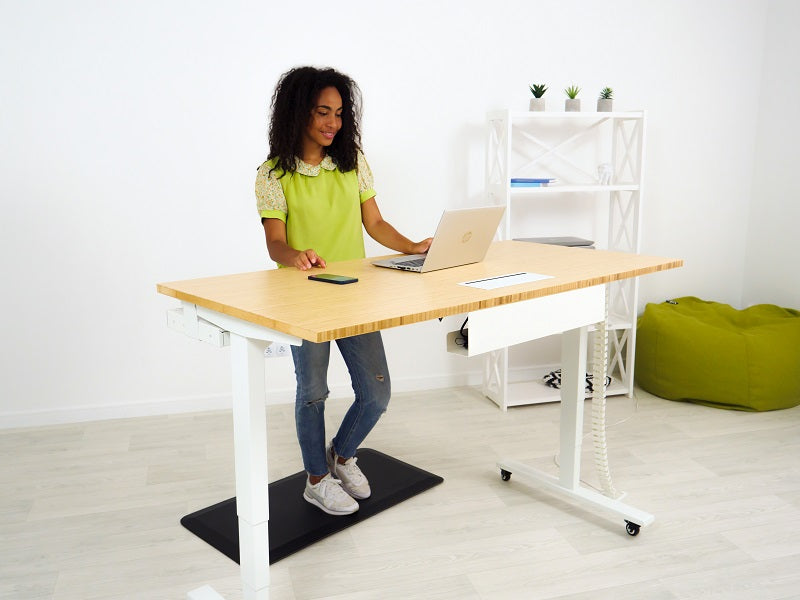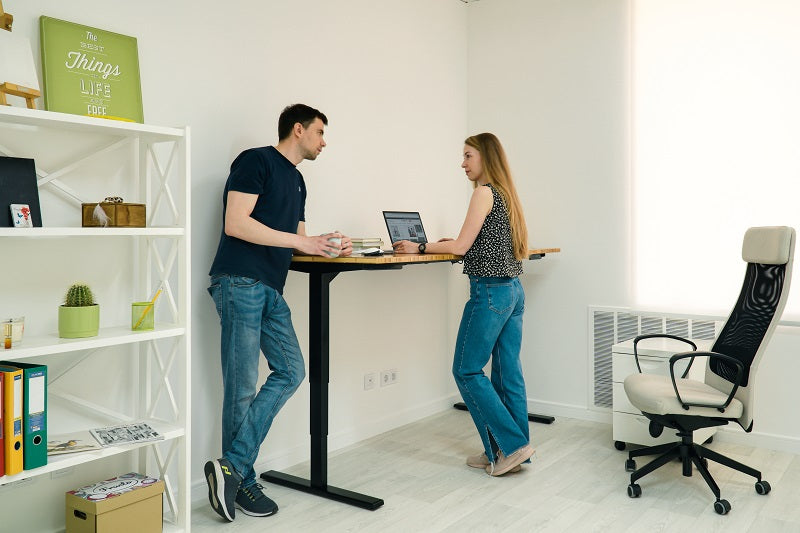In today's fast-paced work environment, achieving peak productivity while maintaining one's health and well-being has become a paramount challenge for professionals everywhere. Enter the dynamic duo of the Pomodoro Technique and standing desks—a combination that promises to revolutionize the way we work by marrying focused, time-managed tasks with the physical benefits of ergonomic furniture! This article discusses how these two productivity powerhouses can be integrated to not only boost efficiency but also enhance focus and promote a healthier working lifestyle.

The Basics of Pomodoro
The Pomodoro Technique has revolutionized the way we approach time management and enhancing focus. By working in intervals, traditionally 25 minutes of focused effort followed by a 5-minute break, you can significantly improve productivity. For those utilizing standing desks, integrating effective Pomodoro intervals can also contribute to health benefits by encouraging regular movement. Utilizing tools for Pomodoro timing can automate this process, allowing users to concentrate on the task at hand without watching the clock.
Initiating a Pomodoro session involves more than just setting a timer; it's about preparing for a period of undistracted work. If you are using a standing desk, this might also mean starting in a seated position and planning to stand during the next work interval or break, combining the Pomodoro Technique with physical activity for enhanced focus and health benefits.
Tools for Pomodoro Timing
Several digital tools and apps can help manage Pomodoro intervals, offering features from simple timers to analytics on productivity patterns. For those at standing desks, some apps even suggest times to transition from sitting to standing, ensuring that the user benefits from both the ergonomic setup and the structured work breaks.

Choosing the Right Ergonomic Desks for Your Team
When integrating the Pomodoro Technique with standing desks, choosing the right ergonomic desks becomes crucial. These desks should allow for easy transitioning between sitting and standing, enabling you to change their work position in accordance with Pomodoro breaks. This adaptability is key to maintaining comfort and focus throughout the workday.
Ideal standing desks offer smooth height adjustability, allowing users to shift between sitting and standing with minimal disruption. Additionally, desks with memory presets can quickly switch to preferred heights, perfectly complementing the Pomodoro schedule by facilitating prompt changes for break times.

The Synergy of Pomodoro and Standing Desks
Incorporating standing desks into the Pomodoro routine encourages a dynamic work style. For instance, standing during the first Pomodoro session of the day can invigorate the mind, preparing it for intense focus. Similarly, alternating positions in sync with Pomodoro intervals can help maintain energy levels and reduce the physical discomforts of prolonged sitting or standing.
Combining movement with focused work sessions offers a dual advantage—enhancing productivity while fostering physical well-being. Alternating between sitting and standing throughout Pomodoro intervals not only aligns with ergonomic principles but also injects a much-needed physical variance into the workday, combating the sedentary lifestyle that often accompanies desk jobs.
That said, tailoring the Pomodoro schedule to integrate standing and sitting periods can maximize the benefits of ergonomic furniture. Adjusting the length of focus sessions or breaks to match personal productivity rhythms or physical needs can further enhance the effectiveness of this combined approach.

Health and Productivity Benefits
Delving deeper into the health and productivity benefits reveals a compelling case for adopting this dual approach. Standing desks alone offer a myriad of health advantages, but when used in tandem with the Pomodoro Technique, these benefits are amplified, fostering an environment conducive to both mental acuity and physical vitality.
Reducing Sedentary Behavior
Integrating standing desks with the Pomodoro Technique offers a structured way to combat the sedentary lifestyle inherent in office work. Regularly switching between sitting and standing mitigates the health risks associated with prolonged sitting, such as increased blood pressure and sugar levels, excessive body fat around the waist, and abnormal cholesterol levels, which can lead to cardiovascular disease and diabetes.
Enhancing Mental and Physical Well-Being
The physical act of standing has been shown to boost not just circulation but also mood and energy levels, contributing to greater overall well-being. The mental breaks afforded by the Pomodoro Technique allow for cognitive rest, reducing mental fatigue and sustaining concentration. Together, these practices foster an environment where employees can thrive, achieving optimal performance without sacrificing their health.

FAQ
What is the ideal Pomodoro interval for standing desk users?
For standing desk users, starting with the traditional 25-minute focus period followed by a 5-minute break is recommended. However, consider extending the break to 10 minutes if standing, to ensure you move and stretch adequately. Adjust based on personal comfort and task demands.
How does standing during Pomodoro breaks benefit health?
Standing during breaks encourages movement and stretching, critical for stimulating circulation and preventing muscle stiffness. It provides a necessary physical contrast to sitting periods, reducing the cumulative impact of sedentary behavior on health.
Can the Pomodoro Technique help with back pain from sitting too long?
Absolutely. The Pomodoro Technique encourages regular breaks from sitting, promoting movement and reducing the continuous strain on the back muscles and spine associated with prolonged sitting. Alternating between sitting and standing throughout the day can further alleviate and prevent back pain.
Conclusion
Embracing the Pomodoro Technique alongside standing desks offers a dynamic pathway to enhancing workplace productivity and health. This harmonious integration of time management and ergonomic practices not only boosts focus and efficiency but also significantly contributes to physical well-being. As the workplace continues to evolve, adopting strategies that support both the mind and the body will be key to fostering an engaged, healthy, and productive workforce. For those looking to enhance their ergonomic office setup further, explore our range of ergonomic office chairs, standing desks, and accessories designed to complement a dynamic work environment. Visit our website to discover how to unlock your team's full potential by promoting a balance between productivity and health!








